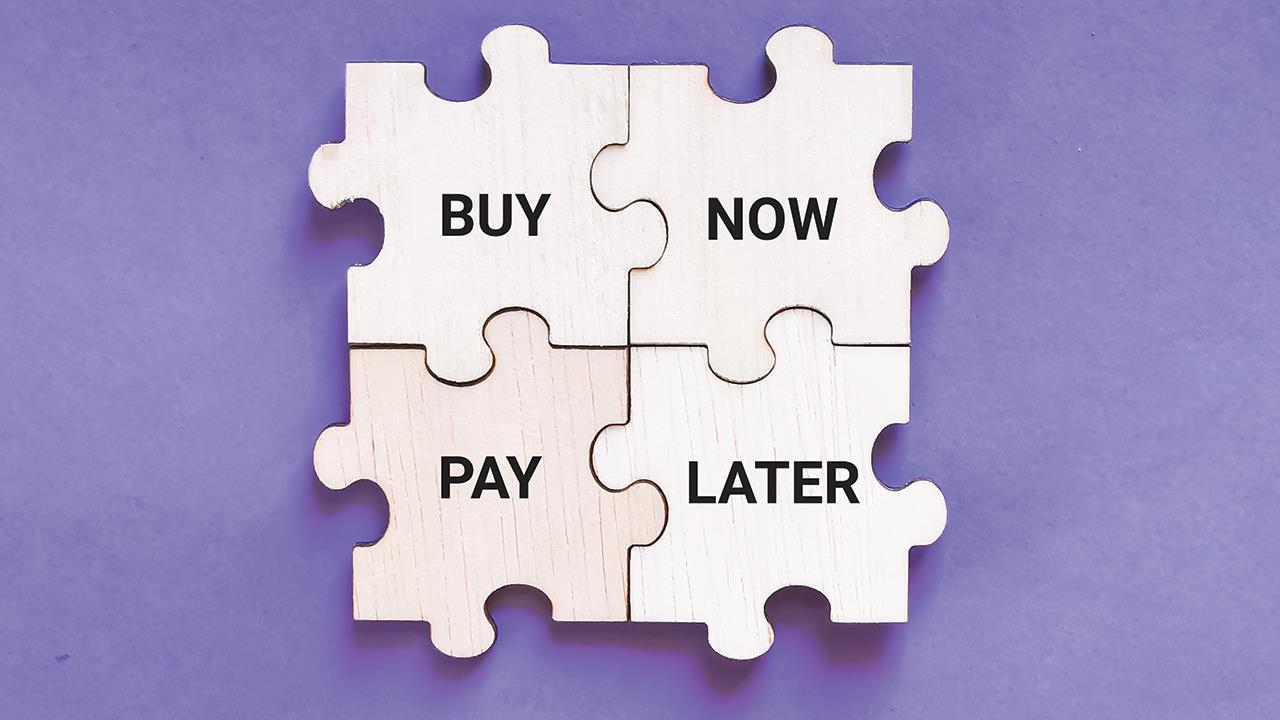

At a time of rising cost, individuals are especially keen to make purchases as affordable as possible. Cheques are history and cash is declining, leaving debit and credit cards to pick up the slack. The problem is that the former card requires funds in an account to make a purchase and the latter usually offers up to 56 days to pay and requires a credit check.
But there is an alternative and it’s known as ‘Buy Now, Pay Later’ (BNPL). An unregulated instalment payment option, invariably with no hard credit search, it seeks to make products more affordable with interest and charge-free purchases.
BNPL has enjoyed explosive growth in recent years. As The Guardian highlighted last October, UK consumers spent more than £4 billion using BNPL, and an estimated 7.7m Britons have balances that average £538 for each borrower.
Labelled ‘the future of millennial finance’, it’s very popular with the under 30’s and those on tight budgets; it’s estimated that by 2026 this form of finance could be worth £40 billion a year. There are many providers that include Klarna, Clearpay, Laybuy, and PayPal.
Firms will, it appears – noted The Guardian – “happily pay lenders generous commission in return for those higher sales. [An] investor said double-digit commission rates were not uncommon in the industry. For lenders, handling payments has shifted from a cost centre to a profit centre.”
But BNPL isn’t without its problems. There’s a growing concern in official circles that the unregulated nature of BNPL is causing problems for many. Some, it appears, are racking up BNPL debts that they cannot afford; those failing to keep up with payments are now accumulating charges or, in some cases, seeing their credit file impacted with loans or mortgages being denied following debt collection action.
Notably, mid-February, TransUnion said that from summer 2022, BNPL transactions will start to appear on credit files. The move will record missed payments and, conversely, help those with ‘thin’ credit files build up a credit profile as they make consistent payments.
But problems aside, BNPL has the potential to be a very valuable tool for firms looking to enhance their popularity among the buying public.
The benefits of BNPL
It’s important to remember that BNPL seeks to promote a frictionless buying experience for users; the more ‘stop’ points that there are in the buying process, the greater the likelihood of a shopping basket being abandoned.
For traders, BNPL offers a way of selling more goods and services while being paid up front – all with protection from repayment risk and fraud.
It opens doors to more people, especially to those that do not possess a credit card. BNPL is very convenient way to access financing; there are no separate application forms, no application fees, minimal additional processing time, and most providers have simple to understand repayment plans and terms; customers can buy with ease in just a few clicks after first registration.
And as is obvious, the ability to spread cost – especially if interest-free – is a wonderful sales conversion tool which makes customers more likely to make a purchase, especially a large one, if they can pay over time; it’s the reason why interest-free credit appeared a few decades ago. But, in contrast to that, as before, BNPL carries no hard credit check.
In practical terms, the consumer shops as normal. But when they get to an online checkout, alongside traditional payment options like credit/debit card and PayPal, they’ll also see a ‘Pay with [BNPL provider]’ button. A quick eligibility check is run, often in the form of a surface inspection of the shopper’s credit history, and the BNPL provider will either approve or reject the customer. Alternatively, for instore and on-site purchases, some BNPL providers offer a digital payment card for a user’s smartphone.
Choosing a BNPL provider
The question for firms then, if they want to offer this form of finance, is which BNPL provider to choose? The answer to that will depend on what is sold, its price, and the seller’s customer base.
BNPL providers, like banks, offer different products with different repayment periods from weeks and months, to years. Those selling higher value goods will do better with a provider that offers payments over six or more months.
Just as customers carry different repayment risks and therefore different credit histories, so some BNPL providers operate minimum and maximum credit limits. This means, by definition, seeking to tie up with a provider that will offer customers enough credit for a purchase to be made.
And integration with ecommerce systems isn’t an issue either. The two biggest operators, Clearpay and Klarna, offer integration and a bespoke service, if necessary.
To an extent, anything that helps firms generate more revenue is a good thing. BNPL is going to see regulation in time. However, for the moment, it is an option that independents cannot not afford to ignore; rivals haven’t.
If you'd like to keep up-to-date with the latest developments in the heating and plumbing industry, why not subscribe to our weekly newsletters? Just click the button below and you can ensure all the latest industry news and new product information lands in your inbox every week.